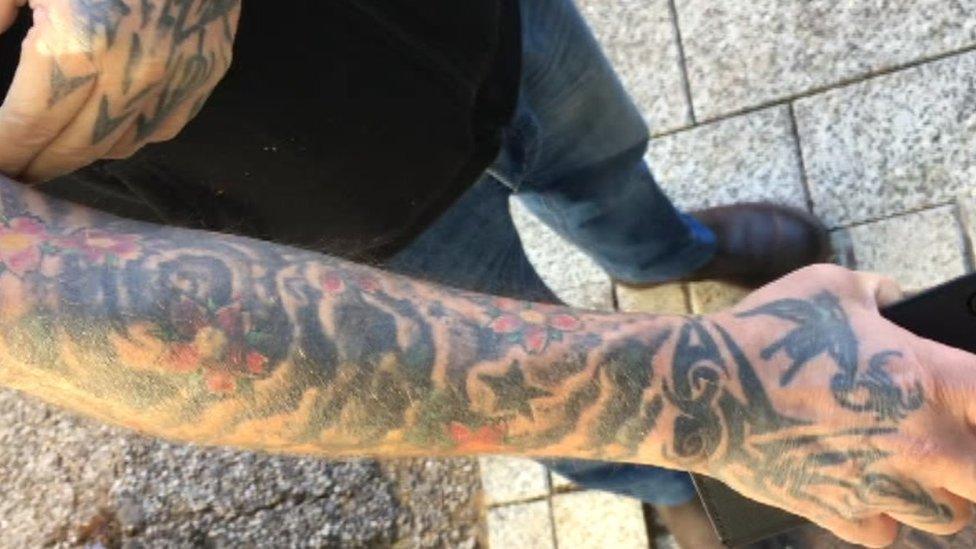Tougher laws to help clean up tattoo trade in Wales
- Published
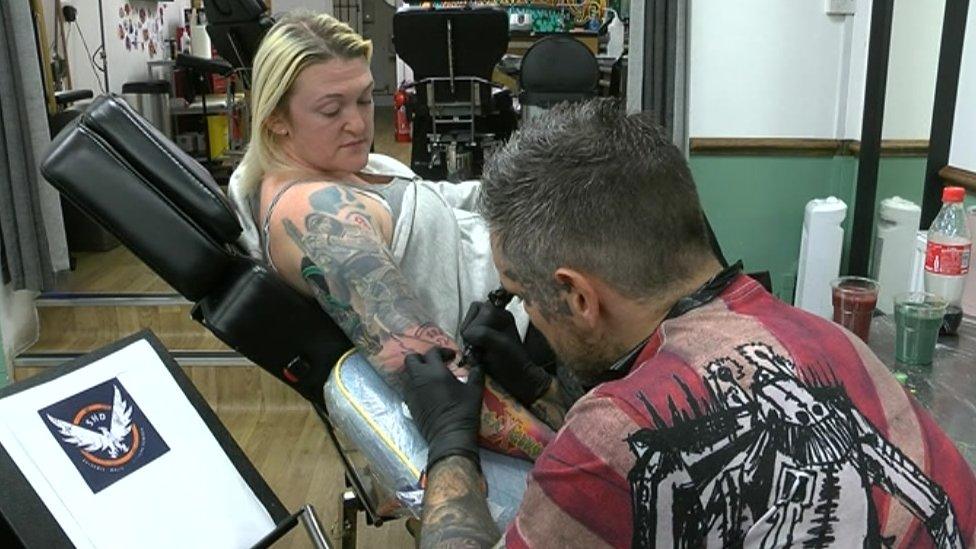
Bronwen Matthews has spent thousands on tattoos and backs the new law
Tattoo artists and those working on body piercing, acupuncture or electrolysis will need a new qualification in Wales.
Tougher controls will be brought in for tattoo parlours and clinics in 2020 under the existing Public Health Bill.
It is aimed at improving protection from infections for the public, associated with poor working practices.
On Wednesday, practitioners taking part in a pilot scheme will be awarded a certificate to prove their competence.
"This course has been developed as part of the requirements for implementing a mandatory Special Procedures Licensing System in Wales," said the Chief Medical Officer for Wales, Dr Frank Atherton.
"It is for learners to obtain a knowledge and understanding of the importance of infection control and prevention."
Once the new legislation becomes law, all practitioners will need to obtain this qualification to get a personal licence, and will be required to demonstrate a knowledge of infection control.
Lee Clements, who runs Chimera Tattoo Emporium at Barry, Vale of Glamorgan, and is the Welsh representative for the British Tattoo Artist Federation, has been working with the Welsh Government to help develop the new qualification.
"I'm really pleased with the way the Welsh Government have handled this, when the licensing system was first talked about a lot of people in the industry were sceptical," he said.
"They thought 'it doesn't matter what our opinions are, the government will go ahead and do what they want'. But they've consulted with tattoo artists, like myself, really closely and given several studios the opportunity to contribute ideas towards questions for the exam."
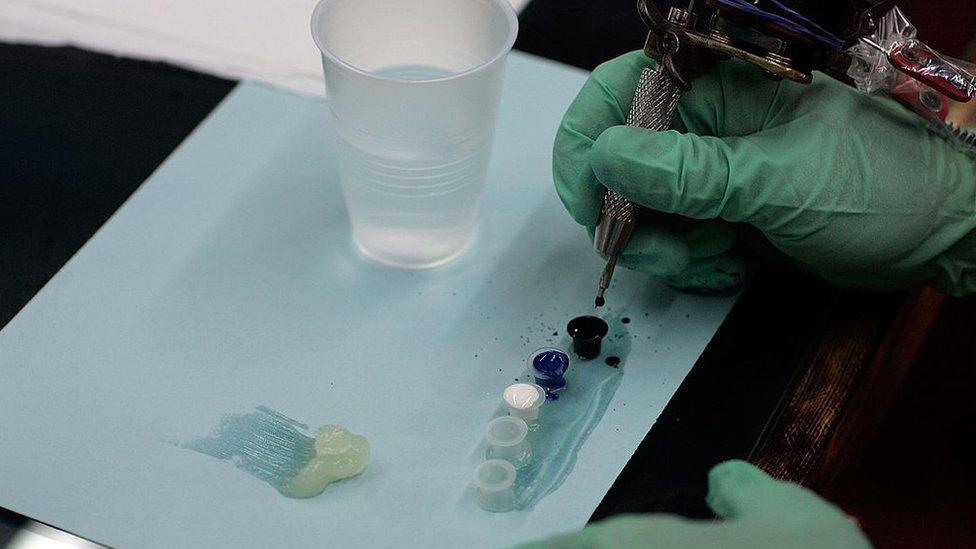
There are now more than 500 licensed tattooists operating in Wales
He said the focus was on hygiene and creating safe barriers between the tattooist, clients and work areas.
"It may sound basic stuff but will make a huge difference in combating bacterial infections and hygiene problems."
Over the last 15 years, the number of tattoo parlours across Wales has rocketed from 60 to 450 licensed premises - and 532 registered tattooists.
But there are many without licences, including self-taught tattooists, known in the industry as "scratchers".
Health experts have warned of the dangers of contracting blood-borne viruses from unlicensed tattoo artists - such as hepatitis B, hepatitis C or HIV - and warn how blood-poisoning caused by dirty needles can kill.
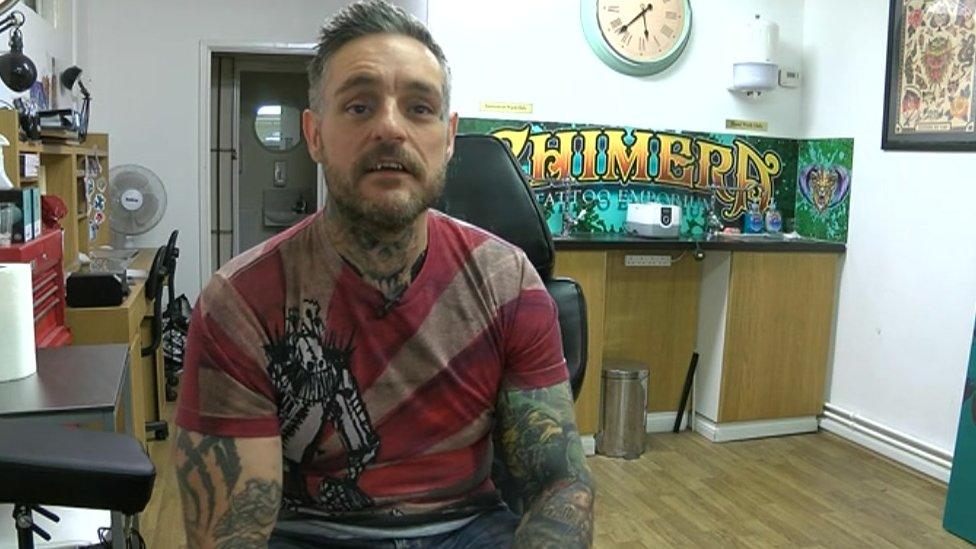
Social media and pop and sports culture has led to an explosion in tattoos, says Lee Clements
Mr Clements, has been a tattoo artist for 20 years and has witnessed this growth
"The industry has exploded over the last 10 years. Social media has played a part in that," he said.
"More celebrities and sports people are getting them and I think that is also responsible for the rise.
"And you do get great quality work but on the flip side there's also an increase in bad tattoo studios and people operating from home. That's why we need the tighter regulations."
The enforceable professional hygiene and health standards could result in prosecutions and fines once it becomes law.
One of the Barry tattooist's customers, 41-year old Bronwen Matthews, had her first tattoo a decade ago.
"My first one was on my foot and now I've got them everywhere, I would say I'm addicted to getting them done. I've spent thousands of pounds over the years with Lee because I know him and trust him to do it professionally," she said.
"But you will always get people using these scratchers because they'll want a tattoo, but can't afford a professional so they'll go to an unlicensed one.
"I do think there has to better regulations to stop that happening."
- Published1 February 2018
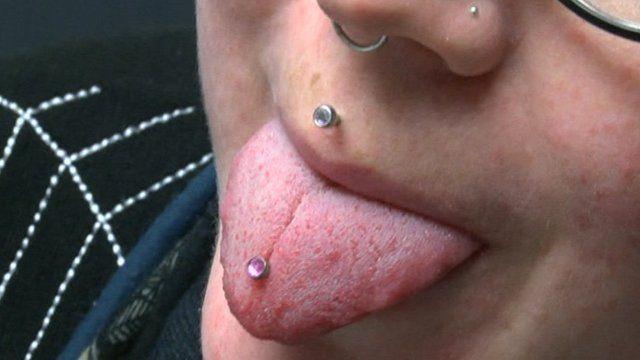
- Published7 November 2016
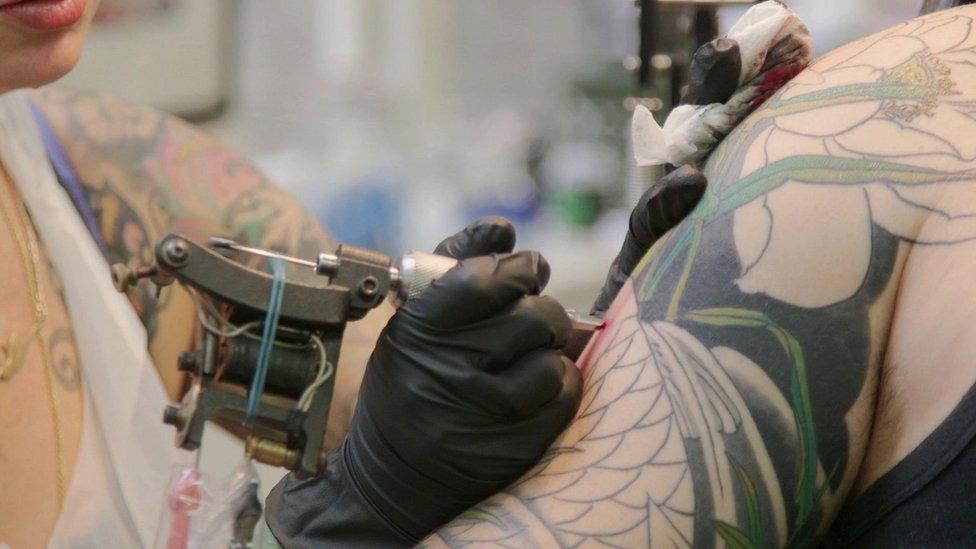
- Published7 November 2016
